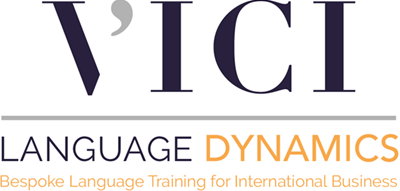Guest Blog post by Karen J. Hewitt
In today’s tumultuous world, companies and even industries are fighting for survival. Competitive advantage is getting harder and harder to find, and previously successful business models are being disrupted. Even small companies and new starts are doing business globally, with all the complexities it brings. With most of the business world speaking English, you would think UK organisations would have the upper hand, but many of the challenges caused by linguistic differences remain hidden, and the benefits of linguistic alignment more so.
As a professional linguist myself, with more than twenty years working globally in large corporations, I have used my language skills to great effect, and seen first-hand the benefits they can bring. Not only do they open an individual’s mind to other cultures and give them confidence to converse with anyone, language skills also bring great benefits to companies.
Multilingualism, you see, is an untapped lever for uncovering latent layers of additional company performance.
While it might seem easier to run your business in English, because the rest of the world seems to speak it, staying within the confines of your mother tongue misses the possibilities for additional potential to be realised, both at individual and company level. Had I never learned a foreign language, I would have never achieved the successes I have and brought additional value to the organisations I have worked for.
In my career, I have proved time and time again that speaking additional languages help companies in the following four ways:
![]() Sales – in my early career I cut my teeth in advertising sales, working for a small but global publishing company in London. I was desperate to use my languages and discovered that speaking to potential clients in their own language earned me the respect and the rapport that led to additional sales. Whilst I had determination and linguistic skills in equal measure, I can only put my sales record success down to a determination to meet my clients on their own linguistic ground. Even when other nationalities speak English well, they are still more comfortable in their mother tongue. And when clients are comfortable, they trust, and they buy!
Sales – in my early career I cut my teeth in advertising sales, working for a small but global publishing company in London. I was desperate to use my languages and discovered that speaking to potential clients in their own language earned me the respect and the rapport that led to additional sales. Whilst I had determination and linguistic skills in equal measure, I can only put my sales record success down to a determination to meet my clients on their own linguistic ground. Even when other nationalities speak English well, they are still more comfortable in their mother tongue. And when clients are comfortable, they trust, and they buy!
![]() Productivity – when we don’t get jobs done right first time, the result is extra cost from rework, and breakdowns in communication caused by linguistic and cultural misunderstandings are a prime cause of productivity losses in the work place. The conflict caused by the misunderstanding can also be the source of disengagement and low morale, adding to the hidden costs. Again, we assume that because everyone speaks English well, communication is effective, but when it isn’t their mother tongue, misunderstandings inevitably ensue
Productivity – when we don’t get jobs done right first time, the result is extra cost from rework, and breakdowns in communication caused by linguistic and cultural misunderstandings are a prime cause of productivity losses in the work place. The conflict caused by the misunderstanding can also be the source of disengagement and low morale, adding to the hidden costs. Again, we assume that because everyone speaks English well, communication is effective, but when it isn’t their mother tongue, misunderstandings inevitably ensue
![]() Safety – I’ve worked in Safety for a long time and know that if there was ever a context in which to ensure 100% understanding, this is it. Again, we might all be speaking the same language, but language is far more than the words that represent it, and the hidden nuances behind them that come from our cultural frames of reference can lead people to make the wrong decisions. And in a high hazard environment, this can be fatal
Safety – I’ve worked in Safety for a long time and know that if there was ever a context in which to ensure 100% understanding, this is it. Again, we might all be speaking the same language, but language is far more than the words that represent it, and the hidden nuances behind them that come from our cultural frames of reference can lead people to make the wrong decisions. And in a high hazard environment, this can be fatal
![]() Engagement – Employee Engagement is big business, because it can literally make or break your business. If your employees aren’t engaged around your values, then the right behaviours won’t ensue, and this can cause issues with compliance that in worst case scenarios lead to loss of sales and reputational damage. When you have a message you want to impart, it may be understood by others whose mother tongue is not English, because they understand English well, but if you want your people to engage with your message, you need to allow them to engage in their own language. And if you are doing this through training and workshops, it means running them in the participants’ own language.
Engagement – Employee Engagement is big business, because it can literally make or break your business. If your employees aren’t engaged around your values, then the right behaviours won’t ensue, and this can cause issues with compliance that in worst case scenarios lead to loss of sales and reputational damage. When you have a message you want to impart, it may be understood by others whose mother tongue is not English, because they understand English well, but if you want your people to engage with your message, you need to allow them to engage in their own language. And if you are doing this through training and workshops, it means running them in the participants’ own language.
I know that all these benefits exist, because I have seen them first hand, but it requires knowledge of other cultural frames of reference to be able to see them.
These days I use my languages to deliver speeches in the language of my audience. Speaking in a language that isn’t your own, no matter your level of competence, is high risk, because you can never understand all the nuances a native speaker takes for granted. But the risk of offending is a risk worth taking, because I’ve discovered that its often not my message that inspires my audience, but my efforts to connect with them in their own language. And when someone is inspired, they usually act, so linguistic skills inspire people to buy from you, returning the investment in language training many times over.
Giving your staff linguistic skills not only has many benefits for the organisation, but also makes employees feel important, a natural conclusion from the fact that the company is investing in their development. This feeling is at the root of employee engagement, and employee confidence, because with more knowledge of different cultures, they feel able to speak out and prevent potentially costly situations unfolding.
 Karen J. Hewitt is the author of “Employee Confidence – the new rules of Engagement”, finalist in the Leadership category of the Business Book Awards 2019.
Karen J. Hewitt is the author of “Employee Confidence – the new rules of Engagement”, finalist in the Leadership category of the Business Book Awards 2019.
She is fluent in five languages and inspires diverse corporate audiences with her talk on “Swimming Up – How to take big career risks and survive the emotional turbulence”. “Employee Confidence – the new rules of Engagement” is available here and at all good bookshops: –

